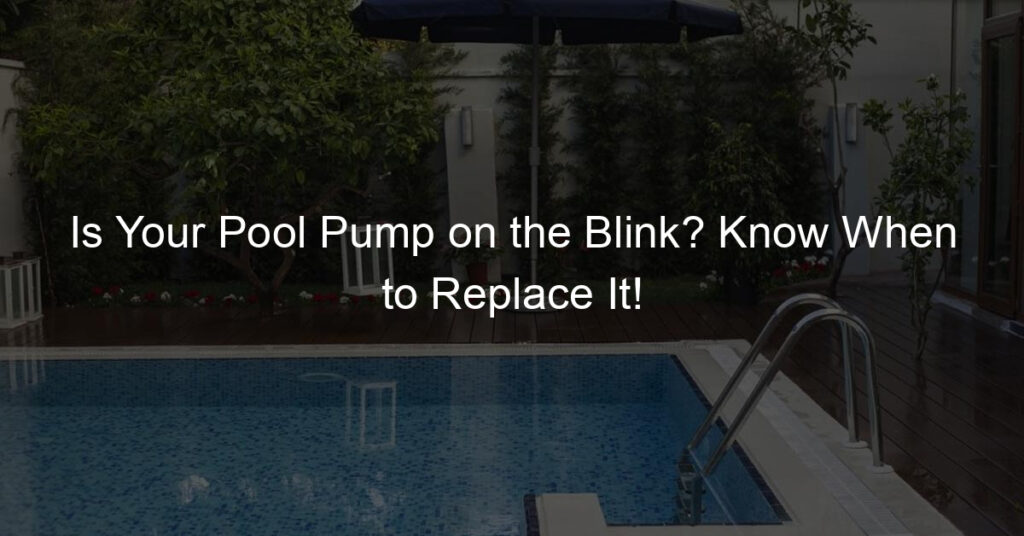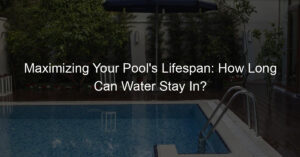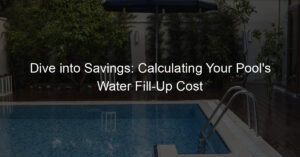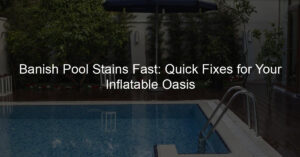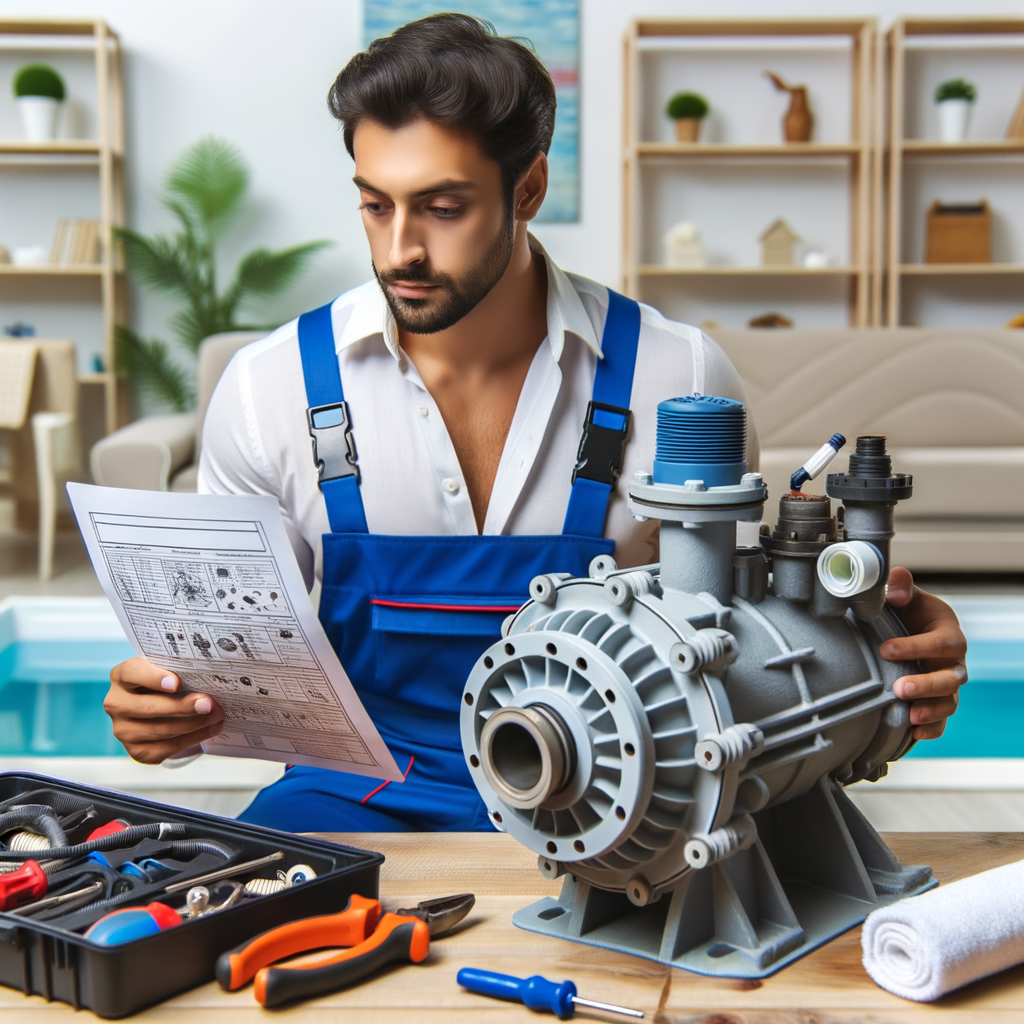
Introduction to Pool Pump Issues
Having a swimming pool at home is a great way to relax and have fun. But, to keep the water clean and safe, we need a pool pump. This important machine can sometimes have problems. In this blog post, we will talk about pool pump issues, how to spot them, and what we can do about them.
- Understanding the role of a pool pump
- Common pool pump problems
The pool pump is like the heart of your swimming pool. It keeps the water moving and filters out dirt and debris. This helps to keep the water clean and clear. The pump pulls water from the pool, pushes it through the filter, and then sends it back into the pool. Without a working pool pump, the water in your pool can become dirty and unsafe.
Like any machine, a pool pump can have problems. Some common issues include the pump not turning on, making strange noises, or not pumping water properly. These problems can be caused by different things, like a broken part, a blockage in the pump, or a problem with the power supply. It’s important to fix these issues quickly to keep your pool clean and safe.
Understanding pool pump issues is the first step in keeping your pool in good shape. In the next sections, we will talk about how to spot signs of a faulty pool pump, how to determine what’s wrong, and when it might be time to replace your pool pump. We will also give tips on pool pump maintenance and repair, and discuss the cost of pool pump replacement.
Signs of a Faulty Pool Pump
When it comes to maintaining your swimming pool, it’s crucial to keep an eye on the pool pump. This device plays a key role in keeping your pool water clean and clear. However, like any other machine, it can develop problems over time. Here are some signs that your pool pump may be faulty:
- Unusual Noises: A well-functioning pool pump should operate quietly. If you start hearing unusual noises, such as grinding, screeching, or humming, it could be a sign that something is wrong. These noises often indicate problems with the motor or bearings.
- Leaking Water: If you notice water pooling around your pool pump, it’s a clear sign of a leak. This could be due to worn-out seals or a cracked pump housing. Ignoring this issue can lead to more serious problems, like water damage or pump failure.
- Decreased Water Flow: The pool pump is responsible for circulating water in your pool. If you notice a decrease in water flow, it could be a sign that your pump is not working properly. This could be due to a blockage in the pump or a problem with the impeller.
- Increased Energy Bills: If your energy bills are suddenly higher than usual, it could be a sign that your pool pump is working harder than it should. This could be due to a variety of issues, including a clogged filter, a worn-out motor, or a leak in the pump.
Recognizing these signs early can save you from costly repairs or replacements in the future. If you notice any of these signs, it’s best to consult with a pool maintenance professional to determine the best course of action.
Determining Pool Pump Problems
Pool pumps are the heart of your swimming pool. They keep the water clean and clear. But like any other machine, they can develop problems. Here’s how you can determine if your pool pump is having issues.
Pool Pump Troubleshooting
Troubleshooting your pool pump can help you identify the problem and possibly fix it yourself. Here are some steps you can take:
- Checking the pool pump’s power supply
- Inspecting for leaks
- Assessing the pump’s performance
First, make sure your pool pump is getting power. Check the circuit breaker and the power cord. If the breaker is tripped or the cord is damaged, your pump won’t work.
Leaks can cause your pool pump to lose pressure and not work properly. Look for wet spots around the pump. If you see water, you might have a leak.
Is your pool pump making strange noises? Is it not pumping water as it should? These could be signs of a problem. You might need to replace some parts or the whole pump.
Remember, troubleshooting your pool pump is a good first step. But if you can’t find the problem or fix it yourself, it’s best to call a professional. They have the tools and knowledge to get your pump back in working order.
When to Replace Pool Pump
Pool pumps can last a long time with proper care. But sometimes, they need to be replaced. If your pump is old, not working properly, or costing you a lot in energy bills, it might be time for a new one.
Pool Pump Maintenance
Regular maintenance can help your pool pump last longer and work better. This includes cleaning the pump basket, checking for leaks, and making sure the pump is getting power.
Pool Pump Repair
If your pool pump is having problems, don’t worry. Many issues can be fixed with a little time and effort. But if the problem is too big or complex, it’s best to call a professional.
Cost of Pool Pump Replacement
The cost of replacing a pool pump can vary. It depends on the type of pump, the cost of installation, and other factors. But remember, a new pump can save you money in the long run by using less energy and requiring fewer repairs.
Conclusion: Ensuring a Healthy Pool Pump
In conclusion, a healthy pool pump is key to a clean, clear pool. Regular maintenance, timely repairs, and knowing when to replace your pump can help keep your pool in top shape. Remember, if you’re ever in doubt, it’s best to call a professional.
When to Replace Pool Pump
Knowing when to replace your pool pump is crucial to maintaining a clean and healthy pool. This decision is often influenced by two key factors: the lifespan of your pool pump and the cost-benefit analysis of repair versus replacement.
- Understanding the Pool Pump Lifespan
- Cost-Benefit Analysis of Repair vs Replacement
A pool pump is a vital component of your pool’s filtration system. On average, a pool pump has a lifespan of 8 to 12 years. However, this can vary based on the quality of the pump, how often it’s used, and how well it’s maintained. If your pump is nearing the end of its expected lifespan and experiencing frequent issues, it might be time to consider a replacement.
When your pool pump starts showing signs of wear and tear, you’ll need to decide whether to repair or replace it. This decision should be based on a cost-benefit analysis. If the cost of repairing the pump is close to or more than half the cost of a new pump, it’s generally more cost-effective to replace the pump. Additionally, a new pump will likely be more energy-efficient, leading to savings on your energy bill over time.
Remember, the key to a healthy and clean pool is a well-functioning pool pump. By understanding the lifespan of your pool pump and conducting a cost-benefit analysis, you can make an informed decision about when to replace your pool pump.
Pool Pump Maintenance
Pool pump maintenance is crucial for the longevity and efficiency of your pool pump. It ensures that your pool water stays clean and clear, providing a safe and enjoyable swimming environment. This section will discuss some preventive measures that can help you maintain your pool pump effectively.
Preventive Measures
Preventive measures are actions you can take to avoid potential problems with your pool pump. They help in reducing the risk of pump failure and extend its lifespan. Let’s delve into some of these measures:
- Regular Cleaning
- Proper Winterization
- Regular Inspection
Regular cleaning of your pool pump is a simple yet effective preventive measure. It helps in removing debris that can clog the pump, reducing its efficiency. Cleaning your pool pump at least once a week can help maintain its performance and prevent issues related to clogging.
Winterization is the process of preparing your pool pump for the winter season. It involves draining the water from the pump to prevent freezing, which can cause damage. Proper winterization can protect your pool pump from the harsh winter conditions, ensuring it functions optimally when you need it in the warmer months.
Regular inspection of your pool pump can help you identify any potential issues early, allowing you to address them before they escalate. You should inspect your pool pump for signs of wear and tear, leaks, and unusual noises. If you notice any of these signs, it’s advisable to seek professional help immediately.
In conclusion, regular cleaning, proper winterization, and regular inspection are key preventive measures for pool pump maintenance. By implementing these measures, you can ensure that your pool pump remains in good working condition, providing you with a clean and enjoyable swimming experience.
Pool Pump Repair
Keeping your pool pump in good working order is crucial for maintaining a healthy and clean pool. Sometimes, despite your best efforts, your pool pump may need some repair. Let’s take a look at when to consider pool pump repair and some common repair procedures.
- When to consider pool pump repair
- Common repair procedures
There are several signs that your pool pump might need repair. If your pump is making unusual noises, it could be a sign of a problem. Similarly, if you notice that your pool water is not as clean as it should be, or if the pump isn’t pumping water as efficiently as it used to, these could be signs that your pump needs repair.
Another sign to look out for is if your pump is constantly running. This could mean that the pump is struggling to circulate the water, which could be due to a blockage or a problem with the pump’s motor. If you notice any of these signs, it’s time to consider pool pump repair.
There are several common procedures for repairing a pool pump. One of the most common is replacing the pump’s motor. This is often necessary if the motor is making a lot of noise or if it’s not running efficiently.
Another common repair procedure is cleaning or replacing the pump’s filter. The filter is responsible for keeping your pool water clean, and if it’s not working properly, it can cause your pump to work harder than it needs to, which can lead to other problems.
Finally, if your pump is constantly running, it might be necessary to adjust the pump’s timer or replace it altogether. This can help to ensure that your pump is running efficiently and not wasting energy.
In conclusion, keeping an eye on your pool pump and knowing when to consider repair can help to keep your pool clean and healthy. Remember, if you’re unsure about any aspect of pool pump repair, it’s always best to consult with a professional.
Cost of Pool Pump Replacement
Replacing a pool pump is an essential aspect of pool maintenance. However, the cost of replacement can vary greatly depending on several factors. It’s important to understand these factors and how to estimate the cost to ensure you’re prepared for this necessary expense.
- Factors affecting the cost
- Type of Pump: Different types of pool pumps come with different price tags. For instance, single-speed pumps are generally less expensive than variable-speed pumps.
- Size of the Pool: The larger the pool, the more powerful the pump needed, which can increase the cost.
- Installation: Depending on the complexity of the installation process, labor costs can also add to the overall expense.
- Location: Prices can also vary depending on your geographical location and the local cost of living.
- Estimating the replacement cost
- Identify the type of pump you need. Research the average cost of this type of pump in your area.
- Consider the size of your pool. Larger pools may require more powerful (and expensive) pumps.
- Factor in installation costs. If you’re not doing it yourself, you’ll need to pay for professional installation.
Several factors can influence the cost of replacing a pool pump. These include:
To estimate the cost of replacing your pool pump, you’ll need to consider the factors mentioned above. Here’s a simple way to do it:
By considering these factors, you can get a rough estimate of the cost of replacing your pool pump. However, for a more accurate estimate, it’s best to consult with a pool professional in your area.
Understanding the cost of pool pump replacement can help you budget for this important aspect of pool maintenance. By knowing what factors affect the cost and how to estimate it, you can be better prepared for this expense when it arises.
Conclusion: Ensuring a Healthy Pool Pump
As we wrap up our discussion on pool pumps, it’s clear that maintaining a healthy pool pump is crucial for the longevity of your pool. Let’s summarize the key points we’ve covered, focusing on the importance of regular maintenance and recognizing the signs of a faulty pool pump.
- Importance of Regular Maintenance
Regular maintenance of your pool pump is a non-negotiable task if you want to enjoy a clean and safe swimming pool. It’s not just about keeping the water crystal clear, but also about ensuring the pump operates efficiently. Regular check-ups can help identify potential issues early, saving you from costly repairs or replacements in the future.
Remember, a well-maintained pool pump can last up to 10 years! So, make sure to clean the pump basket, check the pump seal, and monitor the pump’s pressure regularly. These simple steps can go a long way in extending the life of your pool pump.
- Recognizing Signs of a Faulty Pool Pump
Knowing the signs of a faulty pool pump is equally important. If your pool pump is making unusual noises, not pumping water, or causing your electricity bills to skyrocket, it might be time to call a professional. Ignoring these signs can lead to more serious issues, like a complete pump failure.
Don’t forget, a faulty pool pump not only affects the quality of your pool water but can also pose safety risks. So, stay vigilant and act promptly if you notice any signs of trouble.
In conclusion, a healthy pool pump is the heart of your swimming pool. Regular maintenance and timely repairs can ensure it keeps beating strong, providing you with a clean and safe swimming environment. Remember, a little care goes a long way!

